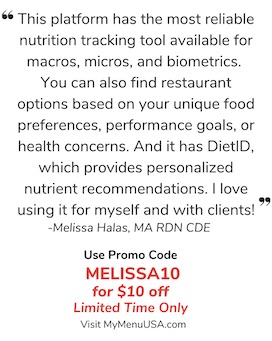
Has your interest piqued in brain health after reading my most recent posts? Are you ready to dive in and start taking action for better brain health? Here are more steps on how to treat your brain better.
My brain better series continues! If you missed my first two posts, backtrack a bit and give your brain a little exercise, starting with How to Support Your Brain.
We all have those days, or even weeks (months?!), where we are operating on total overload. Our brain feels the way our computer operates when it has too many windows open and it’s not functioning at maximum capacity. This is when we know we should slow down, take a deep breath, and make brain health a priority.
Creating a healthy foundation now by taking time to eat right, exercise, practice gratitude, de-stress, and connect with people and nature makes us more prepared for times when slowing down isn’t an option. When life gets ultra-demanding and throws you curveballs, having healthy habits in place ensures your body and brain will be operating at a balanced baseline.
Think back to a time when it felt like you had too many ‘windows’ open in your mind—like your brain was on the verge of overload. What healthy habits could have helped you manage that mental clutter? Here are a few ideas.
First things first – good nutrition for brain health!
Start by showing your brain some love by feeding it right. Did you know your brain uses about 20% of your calorie needs, regardless of how much you are thinking or physically working? (1)
Although any food you eat can provide brain energy, research shows that focusing on a high-quality diet is advantageous to your brain’s processing.
- Evolving research shows that eating plant-based foods is good for your brain and cognitive abilities.
- Cognitive abilities are brain-based skills used to carry out any task you learn, from simple to complex.
- Take a closer look at the Mediterranean diet and the MIND diet. Both emphasize eating plant-based foods and are associated with higher scores on cognitive function tests. (2)
- In a recent study, people with a nutrient-rich diet rich in vegetables, fruits, nuts, and fish revealed higher cognitive abilities. (3)
So, while healthy plant-based foods generally provide health benefits, certain foods (some of which we’ve noted below) have specifically been studied for brain benefits.
Help support your brain with nutrients!
Mushrooms for brain health
Mushrooms, such as fresh, dried, and canned golden oysters, white buttons, and shiitake mushrooms, may help support cognition. (4)
Start adding mushrooms into your diet now – not only for a possible brain benefit but also for a nutrient boost. If you don’t like mushrooms, they can easily be hidden in ground poultry, bean burgers, tacos, and chili. Plus, mushrooms have high amounts of certain antioxidants that boost health, including a plant compound called ergothioneine. (5,6)
Green tea, blackberries, oats, and carrots for brain health
You’ve probably heard that green tea is good for your health. This is due to a compound called epigallocatechin-3-gallate (EGCG). Although green tea has the highest amount of EGCG in comparison to other foods or beverages, there are small amounts in other foods as well, such as blackberries, oats, and carrots. EGCG has potential neuroprotective properties. (7) To boost these protective nutrients:
- Include blackberries and oats in your breakfast rotation, and add roasted carrots to your dinner menu. They offer additional powerful plant compounds that help heart health.
- Boost plant-based foods to add more phytonutrients to your diet
These biologically active compounds from plants provide functional benefits beyond basic nutrition.
References:
- Raichie M & Gusnard DA. Appraising the brain’s energy budget. Proc Natl Acad Sc. 2002; 99(16): 10237–10239. doi: 10.1073/pnas.172399499
- McEvoy CT, Guyer H, Langa KM, Yaffe K. Neuroprotective Diets Are Associated with Better Cognitive Function: The Health and Retirement Study. Journal of the American Geriatrics Society. 2017; 65(8)
- American Academy of Neurology. For older adults, a better diet may prevent brain shrinkage. ScienceDaily. Retrieved August 11, 2019.
- Feng L, Cheah I, Ng M, Li J, Chan S, et al. The Association between Mushroom Consumption and Mild Cognitive Impairment: A Community-Based Cross-Sectional Study in Singapore. Journal of Alzheimer’s Disease. 2019; 68:197-203
- Kalaras MD, Richie JP, Calcagnotto A, Beelman RB. Mushrooms: A rich source of the antioxidants ergothioneine and glutathione. Food Chemistry. 2017; 233: 429–433
- Pervin M, Unno K, Ohishi T, Tanabe H, et al. Beneficial Effects of Green Tea Catechins on Neurodegenerative Diseases. Molecules. 2018; 23:1297
- Halas M. (2019) Part 5: Phytonutrients.The Plant-Based Boost Nutrition Solutions for Athletes and Exercise Enthusiasts. 2019
- Nehlig, A. Effects of coffee/caffeine on brain health and disease: What should I tell my patients? Pract Neurol. 2016 Apr;16(2):89-95. doi: 10.1136/practneurol-2015-001162. Epub 2015 Dec 16.
- Vaughan MJ, Mitchell T, McSpadden Gardener BB. What’s Inside That Seed We Brew? A New Approach To Mining the Coffee Microbiome. Appl Environ Microbiol. 2015; 81(19):6518-6527
- Yamada K, Nabeshima T. Brain-derived neurotrophic factor/TrkB signaling in memory processes. J Pharmacol Sci. 2003; 91(4):267-70
- Autry AE, Monteggia LM. Brain-derived neurotrophic factor and neuropsychiatric disorders. Pharmacol Rev. 2012;64(2):238-58. doi: 10.1124/pr.111.005108
- Bathina S, Das UN. Brain-derived neurotrophic factor and its clinical implications. Arch Med Sci. 2015;11(6):1164-78. Doi: 10.5114/aoms.2015.56342
- Kim HY, Huang BX, Spector AA. Phosphatidylserine in the Brain: Metabolism and Function. Prog Lipid Res. 2014. doi: 10.1016/j.plipres.2014.06.002
- Bacarra-Tomás N, Paz-Graniel I, W.C. Kendall C, Kahleova H, Rahelič D et al. Nut consumption and incidence of cardiovascular diseases and cardiovascular disease mortality: a meta-analysis of prospective cohort studies. Nutr Rev. 2019. doi: 10.1093/nutrit/nuz042
- Hardman, WE. Walnuts have potential for cancer prevention and treatment in mice. J Nutr. 2014;144(4 Suppl):555S-560S.
- Li M and Shi Z. A prospective association of nut consumption with cognitive function in Chinese adults aged 55+ _ China Health And Nutrition Survey. J Nutr Health Aging. 2019;23(2):211-216
- Smith B. Processed Meat and Cancer. American Institute for Cancer Research website. Accessed Aug 11, 2019. https://blog.aicr.org/2019/08/01/processed-meat-and-cancer/
- De la Monte SM, Neusner A, Chu J, Lawton M. Epidemiological Trends Strongly Suggest Exposures as Etiologic Agents in the Pathogenesis of Sporadic Alzheimer’s Disease, Diabetes Mellitus, and Non-Alcoholic Steatohepatitis. Journal of Alzheimer’s Disease. 2009; 17(3): 519-529





